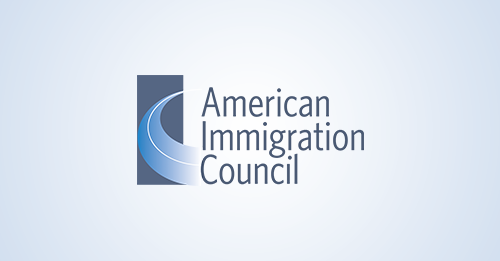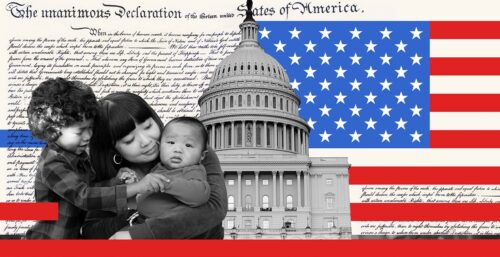Executive Summary
While federal law ensures the right to legal counsel in removal proceedings, the law still does not guarantee the government will pay for counsel if the person is unable to afford one. Having legal counsel is among the most decisive factors in determining whether someone will obtain legal relief in removal proceedings. According to a 2016 study by the American Immigration Council, people were five times more likely to obtain legal relief if they were represented by counsel. People who were detained were ten-and-a-half times more likely to succeed. In the absence of a universal right to counsel, a significant portion of people in removal proceedings—at least 40 percent—are unrepresented by counsel. The representation rate is even lower for people held in detention.
In addition to making proceedings fairer, providing legal representation advances the government’s interest in ensuring due process and efficiency in the legal system, reducing the detention of immigrants, and reducing the immigration court backlog which exceeds 1.25 million cases. Ensuring legal representation would dramatically reduce the government’s costs for detention and court proceedings. The federal government has a clear imperative to provide legal representation to people facing removal and should recognize their right to counsel, paid for by the government when necessary.
AILA and the American Immigration Council call upon the Biden administration to take steps immediately upon entering office to expand federally funded legal representation programs for people facing removal. In its first year, the Biden administration should concentrate on legal representation for vulnerable populations (including but not limited to people who are detained, children ages 21 and younger, asylum seekers, people who speak rare languages, and individuals with mental disabilities). These populations face extreme challenges in obtaining fair and meaningful review of their claims for asylum and other legal relief. Ultimately, the federal government should establish a nationwide legal representation system that guarantees representation to all people facing removal.
Critical to the success of this effort will be securing the funding for legal counsel programs. President Biden should request additional appropriations from Congress and, in the short term, draw upon other available federal funds. Until legal representation can be provided to people facing removal, the Biden administration should establish protocols to temporarily defer adjudication in immigration court proceedings involving respondents who are not represented by counsel. Only be ensuring legal counsel for everyone facing removal will the Biden administration be able to fulfill its commitment to fairness and due process.
Go directly to Recommendations
1. Why the Government Should Provide Counsel to People in Removal Proceedings
While all individuals undergoing immigration hearings should be provided with legal representation, in its first year the Biden administration should prioritize vulnerable individuals. Arriving asylum seekers and other migrants seeking humanitarian protection typically have fled under exigent, even dire, circumstances. In addition to any persecution or other traumatic experience they may have suffered in their home country, many have endured a long and harrowing journey to the United States and are less likely to have documentation or other resources to support their claims for legal relief.
People who are detained face enormous challenges due to their deprivation of liberty, including limited access to the internet and other sources of legal information, limited access to phone services, difficulty obtaining support services, lack of contact with their family and communities, and limited time to prepare a claim resulting from the accelerated nature of the detained court docket. The federal government has already recognized the benefits of providing legal representation for children and people with mental disabilities and has established the Unaccompanied Children’s Program funded through the Office of Refugee Resettlement and the National Qualified Representation Program funded through the Executive Office for Immigration Review. Both programs should be expanded.
Providing legal counsel to people needing humanitarian protection at the southern border will facilitate the government’s overall aims of ensuring the fair and efficient processing of migrants at the southern border. People who are represented by counsel have a better understanding of the legal process and are typically more prepared to proceed in their legal cases. The most common reasons pro se individuals request continuances are to seek counsel or to prepare their case. Legal counsel can also assist with identifying family or community members to whom an individual could be released. All these factors reduce the time judges spend on each case and contribute to more efficient court processing.
Providing greater access to counsel will facilitate the significant reduction of detention levels—an independent goal which AILA and the Council urge the federal government to implement immediately upon entering office. After people are released, legal representation improves compliance with legal obligations, including their appearance rates in court. Studies of over a decade of EOIR data since 2008 have found that people represented by counsel appear in court over 96 percent of the time, as a lawyer can help them navigate a complex system generally conducted in a language not their own.
2. How legal representation programs should be rapidly funded and expanded
A. Expand national legal counsel programs
The Biden administration should take immediate action in 2021 to expand national legal representation programs and guarantee counsel for the vulnerable populations described above. Following the model used by existing federal legal counsel pilot programs, the Biden administration should award federal contracts to one or more national non-profit organizations that will subcontract with local legal service providers to provide legal representation and related services.
Currently there are two federally funded legal counsel programs: the Unaccompanied Children’s Program (UCP) and the National Qualified Representative Program (NQRP) which are funded, respectively, by the Office of Refugee Resettlement/HHS and the Executive Office for Immigration Review/DOJ. Under the management of the Vera Institute of Justice, the UCP provides legal information in the form of Know Your Rights presentations, legal screening, and representation to unaccompanied children through contracts with 44 local providers serving every immigration court in the country. The NQRP provides counsel to people deemed incompetent due to a mental disorder through contracts with 46 providers serving courts in 24 states. The extensive network of service providers enables these programs to provide coverage in almost all immigration court jurisdictions in the country. Additional details of those programs are provided in Appendix A.
New representation programs should build upon the legal and operational expertise of these existing programs. As has been the case with the Vera-operated programs, having a national non-profit organization manage the federal contract program provides the benefits of centralization and economies of scale. The national contractor would provide program support, training, and other services to assist the local service providers. A central national organization would also develop expertise and disseminate lessons learned from local sites.
B. Identify Immediate Funding for Legal Representation Programs
Request additional funds in the President’s FY 2022 budget and future appropriations bills
The President’s FY 2022 budget should seek additional appropriations for the Department of Justice and Department of Health and Human Services to expand legal services programs for the vulnerable populations identified above. The current appropriations and past proposed bills funding legal representation, legal orientation programs, and related services include but are not limited to the following:
- $212 million was appropriated for FY 2021 to the Administration for Children and Families for legal services, child advocates, and post-release services for unaccompanied children;
- $22.5 million was appropriated for FY 2021 to the Executive Office for Immigration Review for “services and activities provided by the Legal Orientation Program,” including the Immigration Court Help Desk, the LOP Call Center, and some expansion of LOP to new facilities.
- $15 million was included in H.R. 7667, the Commerce, Justice and Science Appropriations Act to fund the Office of Justice Programs to establish “a competitive grant pilot program for qualified nonprofit organizations to provide legal representation to immigrants arriving at the southern U.S. border seeking asylum and other forms of legal protection in the United States.” The bill passed the House of Representatives, but funding was not included in the FY 2021 omnibus appropriations bill that passed in December 2020.
Draw upon immediately available federal funds to expand legal representation in FY 2021
To increase funding for legal representation in FY 2021, the Biden administration should explore what funds are available within DHS, DOJ, and other agencies that could be used by transferring or otherwise moving funds within a single agency or between agencies. A transfer of funds between agencies (technically an order for services) could be done by an Inter-Agency Agreement Pursuant to the Economy Act, 31 U.S.C 1535. For example, DHS funds could be used for legal representation on the basis that it is appropriate to advance DHS’s purpose of ensuring the fair and efficient processing of the enforcement and removal process, including the management of the detention population. This funding structure was used in 2018, when ICE executed an IAA to provide funds to EOIR to provide legal orientation presentations to people subject to expedited removal. Congressional approval of interagency transfers may be avoidable or less onerous if the funding is deemed consistent with the purpose of the appropriation. Local service providers, local communities, and national experts should be consulted in this process to ensure operational and programmatic alignment.
State and local government funding for legal representation programs
More than 40 states and localities have launched legal counsel programs for people in removal proceedings. Recognizing the success of these state and local funded programs, the Biden administration should support their continuation and incentivize new programs by providing funding that supplements, reimburses, or matches state and local programs. In the long-term, the federal government should aim to implement and fund universal representation for people facing removal. Legal services for immigrants should not be dependent on states and localities whose budgets may be more severely impacted during an economic downturn. While many large cities and states with large immigrant populations have stepped up to fund programs, federal leadership is needed to ensure that all jurisdictions in the country are covered. In addition, the federal government should not condition legal representation on someone being in detention, a criterion that is used by some state and local programs. See Appendix A for more information about state and local programs.
- In his FY 2022 budget submission to Congress and subsequent budget requests, the President should seek additional funding for legal representation programs covering all vulnerable populations facing removal (including but not limited to people who are detained, children ages 21 and younger, people who speak rare languages, individuals with mental disabilities, and asylum seekers).
- The Attorney General should issue a directive stating a fundamental commitment to provide every indigent person facing removal with legal representation if they cannot afford it and reaffirming the legal authority for the federal government to pay for legal representation. The directive should commit to the expansion of legal representation programs in every immigration court jurisdiction and at the BIA.
- The Attorney General or Deputy AG should announce a policy for EOIR leadership to temporarily defer adjudication cases involving unrepresented individuals. Proceedings in such cases should be suspended for presumptive periods of one year until the respondent obtains legal counsel or the government provides counsel. Before a case is deferred, informed consent should be obtained from all pro se individuals. Immigration judges should give special care to advising people in detention of their legal rights and obligations and offering the option of granting continuances as needed until counsel can be obtained. These steps should be taken in conjunction with procedures to ensure all people in detention receive a prompt custody determination (bond) hearing upon request in which the government bears the burden of establishing that continued detention is justified. EOIR leadership should provide immigration judges with guidance to facilitate the appointment of counsel and guarantee due process for pro se individuals. The Secretary of Homeland Security (or ICE leadership) should issue companion guidance instructing government counsel not to proceed in cases involving unrepresented individuals and to support the deferral of such cases.
- To secure immediate funding for FY 2021, the Attorney General and Secretary of Homeland Security should identify any available agency funds that can be reprogrammed within the agency, transferred between agencies, or otherwise used to fund legal representation programs.
- The White House, Attorney General, and Secretary of Homeland Security should convene a roundtable or task force of immigration legal services providers and experts to provide guidance regarding the implementation and funding of legal representation and related programs.
- The Attorney General should appoint a senior official to coordinate, identify funding for, and provide oversight to appointed counsel programs. The Attorney General should reestablish the Office for Access to Justice begun under President Obama which supported access to counsel in immigration, other civil, and criminal cases.
- The Attorney General and Secretary of Homeland Security should issue joint guidance instructing EOIR and ICE to ensure individuals in immigration detention have adequate access to counsel at all immigration courts and within all detention facilities. The senior official within the Department of Justice responsible for appointed counsel programs should provide guidance and oversight to the ICE Director regarding the authorization of detention facility contracts, including their location and accessibility to nonprofit legal organizations and pro bono legal counsel programs, and the rules and policies of such facilities regarding access to legal representation and education programs.
- DHS and DOS should grant the 2017 petition for rulemaking filed by AILA and the American Immigration Council requesting that the regulations be amended to guarantee access to counsel in visa interviews and other proceedings at U.S. Embassies and Consulates, and during the secondary and deferred inspection processes. In the interim, CBP should provide guidance ensuring agents and officers provide meaningful access to counsel in secondary and deferred inspection proceedings and for expedited removal and all other summary removal procedures. The Department of State should also provide guidance for consular officers to recognize individuals’ right to counsel during the visa interview process.
Appendix A – Description of Selected Immigrant Legal Services Programs
The following programs represent a small sample of existing national, state and local legal representation programs. These programs should serve as a model for how universal representation can be achieved.
Unaccompanied Children Program (UCP)
The Vera Institute of Justice subcontracts with legal service providers across the country to provide unaccompanied children arriving at the border with free legal representation.
The program has been in existence since 2005 and Vera currently oversees legal services organizations providing assistance to children throughout the country. Such services include know-your-rights orientations, individual screenings, and free legal assistance. This program is funded by the Office of Refugee Resettlement and is structured in such a way that Vera is the recipient of the funds and it in turn subcontracts with various legal services providers. Currently, the UCP program oversees 44 legal services organizations operating in 21 states. This model could be expanded with additional funding to contract with additional legal service providers and expand coverage to more states. The program is currently funded by HHS in the amount of about $115 million annually for legal representation and related services.
National Qualified Representative Program (NQRP)
The NQRP provides appointed legal representation for detained, unrepresented immigrants who are found by an Immigration Judge to be incompetent to represent themselves due to a serious mental disorder. The program was created in 2013 by the Executive Office for Immigration Review (EOIR), and in 2014 the EOIR contracted with Vera to set up the program services. The NQRP operates by contracting with and maintaining a network of Qualified Representatives (QRs) who are appointed following a determination of the respondent’s incompetency to represent themselves. QRs are nonprofit organizations and law firms with specific skills and experience that allow them to provide zealous, competent, person-centered representation and related services to NQRP clients. Similar in structure to the UCP, Vera is the primary contractor and funding recipient from EOIR, and it in turn subcontracts with QRs around the country to provide legal services. Currently the NQRP operates in 24 of the 31 states with immigration courts. As with the UCP, such a model could be expanded to maintain a greater number of QRs in more states, and in turn provide legal services to more individuals. NQRP is funded by DOJ/EOIR in the amount of $12 million per year.
New York Immigrant Family Unity Program (NYIFUP)
NYIFUP is the nation’s first public defender system for immigrants facing deportation. Since July 2014, NYIFUP has provided a free attorney to almost all detained indigent immigrants facing deportation at Varick Street Immigration Court. The program is funded by the New York City Council with a $10 million budget in 2016. NYIFUP contracts with legal service providers in New York who in turn deliver representation through the program. From its launch in 2014 through 2016, NYIFUP provided free legal representation to 1,772 indigent individuals. In the first three years of the program, it is estimated that NYIFUP clients had a 48% success rate. This represents a 1100% increase from the unrepresented success rate of only 4%. NYFIUP is perhaps the premiere example of a universal representation program that is already working on the ground that is not limited to a particular class of individuals (unaccompanied children, mentally incompetent, etc.) As with UCP and NQRP, NYIFUP uses a contractor model to provide legal services. However, it differs in that the funding source is the local government—the New York City Council—rather than a federal entity. To expand NYIFUP, federal funds should be used to match what is already being granted to ensure the commitment of both federal and local stakeholders.
California Immigration Services Programs
California administers several immigration legal services programs that support pro bono counsel for low-income immigrants, including temporary programs to address needs arising from changes in immigration policy or programs to expand immigration legal services capacity. Services supported by each of the programs may vary and can include: legal representation, community education and outreach, and legal training and technical assistance. Funding is principally awarded through a competitive bidding process. Statutory eligibility requirements for immigration legal services funding is found under California’s Welfare and Institutions Code Sections 13300-13308. The programs include the following:
- Unaccompanied Undocumented Minors (UUMs) Program: Since 2014 the State has allocated $3 million annually for full-scope representation of UUMs.
- Immigration Services Funding (ISF): Beginning in 2016 the ISF has funded qualified nonprofit organizations to provide free immigration services for low-income Californians eligible for citizenship or affirmative immigration remedies or benefits including DACA. The 2017-18 state budget expanded the state-funded services to include removal defense services for the general population. Since 2019-2020, the ISF program has a yearly $45 million allocation and an additional $10 million for legal services to support emergent areas of need including legal services for TPS holders and augmentations to the DACA Legal Services Program.
- DACA Legal Services (DLS) Program: DLS was established in September 2017 after a $20 million appropriation to support legal services to assist DACA eligible individuals after the federal administration announced the termination of the DACA program and provided a four-week window to file renewal applications. The DLS program received subsequent augmentations totaling nearly $10 million from existing funding resources.
- Rural Justice Fellowship: A one-time $4.7 million investment to build capacity for removal defense in rural California.
- Public Higher Education: California provides legal services for students, faculty, and family members of students enrolled at California community colleges, State Universities, and the University of California system. The state funds the Department of Social Services with $45 million to provide legal orientation and education, affirmative applications for immigration benefits, and removal defense for individuals at risk of deportation.




